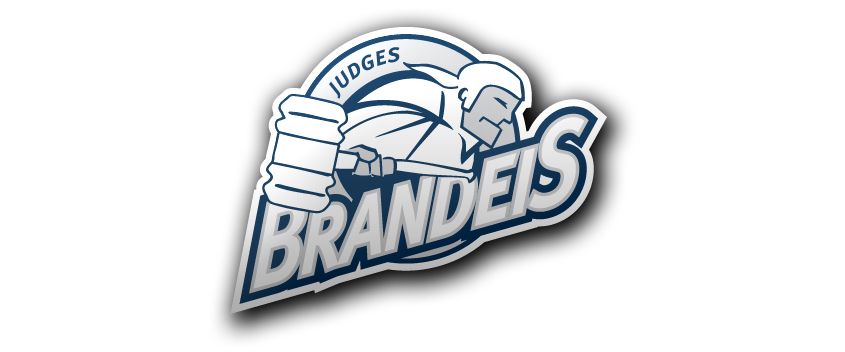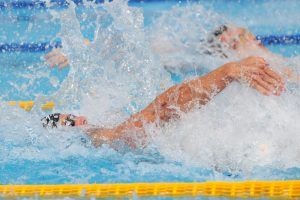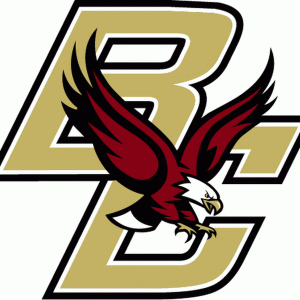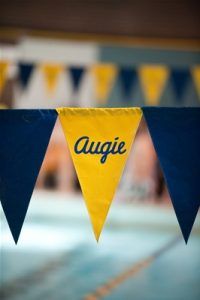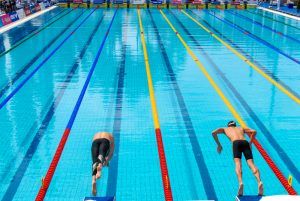Mike Kotch, head coach of the Brandeis University swim program drops by to share some recruiting advice for swimmers looking to taking their swimming prowess from high school to the collegiate level.

The Judges are a men’s and women’s NCAA III team that compete in the University Athletic Association. At the recent UAA Championships in February the lady Judges finished in 8th place, scoring nearly 60 more points than they did last year.
Brandeis University is located in Waltham, Massachusetts, just a few miles west of Boston. The enrollment is just under 4,000 students.
What are the biggest mistakes or assumptions student-athletes make during the recruiting process?
Not taking the time to experience the campus and meet a coach in person. The internet certainly provides a lot of information on academics, and meet results, but I link a large part of success in swimming on the swimmer/coach relationship, the culture of the campus and the program, and on teammate interactions and accountability. I think we surprise a lot of recruits with our ability to offer a “D1 experience” within the balance and scope of D3 athletics. We can certainly understand the point of view that a recruit wants to see if they are going to be admitted prior to visiting, especially if they are on the west coast, but the general point is how serious is a coach to take a recruit’s interest if he/she won’t even make a preliminary visit or official visit. Virtual tours just don’t cut it!
What surprises student-athletes most during their first year?
We actually do what we tell recruits we do during the recruiting process. It seems odd when you read what I just wrote again, but there is a big difference between talking about expectations and then acting upon meeting them; especially when it is now squarely on the shoulders of an 18 year old.
What do you find they are least prepared for, or possibly, are most surprised to see/experience?
I think it is hard to adjust to the level of accountability that exists amongst sophomores, juniors, and seniors. A freshman is suddenly in charge of him or herself. No more mom or dad to make sure they get to practice, to make sure the lights are out at night, or to help them eat properly. Upper classmen here certainly provide a web of support during a freshman’s transition, but even their eyes roll at the first alarm clock story each fall. A collegiate team is built around a number of individuals who have made a conscious choice to attack their studies and their training in an environment that motivates and stimulates them. It is much different when “Johnny” doesn’t show up for club practice vs. a collegiate TEAM practice. We also find that sometimes freshmen try to take on too much. Maybe they were able to be a part of six clubs, a band, and a play in high school, but we encourage our kids to find a passion and make a meaningful contribution around an organization that ignites that passion. For many, it’s only the pool, but for others it is important to maintain an outlet outside of the pool. The message we start to relay during recruiting is to make an investment. It is better to actually be at a meeting than to be always running to the next one because you quickly lose credibility amongst your peers.
What are some non-swimming and non-academic questions that you ask athletes during the recruiting process?
We like to ask recruits what is important to them about a campus community, and/or their expectations for social development during their college career. We are very fortunate to have a very collaborate and supportive 235 acre campus community, but it isn’t too bad to have one of the best college towns in the country only eight miles away either! We also like to ask them about what they have learned thus far from an information session or campus tour. You can get a small glimpse if they are truly engaged and starting to visualize themselves as a member of the campus community.
What is the most important answer you look from a student-athlete when talking to them for the first time?
We like to be motivated too. We want to get a sense that there is genuine passion and determination present. Part of our philosophy is to have the team in a constant position to run itself. Swim lesson program…let’s rally and make it great! Community service idea….let’s rally and make it great. Just about every kid that applies to Brandeis is a leader in some capacity; of their team, their club, their class. There’s always going to be some hand holding, but we continue to work hard at putting these kids in a position to grow their leadership qualities and to learn how to work well amongst a lot of other type A personalities. Best thing about my experience here is that these kids are humble beyond belief despite being talented.
What are some “red flags” of prospective student-athletes?
Not asking questions. Not being responsive to communication attempts. I don’t think many recruits realize that they have to recruit the coach and the team a little bit along the way too. It’s important to us that we get the sense a recruit will fit into our overall culture. Again, we work hard to give the team a sense of self directed leadership and recruiting trip feedback is a large part of that.
What makes your program and team culture unique from other swim teams?
We feel that by working to include the swimmer in the process (a process that includes goal meetings, training, training feedback, academic meetings, etc.) we are able to speed up the learning curve because the swimmer invests in what we are doing a bit quicker, or a bit more I guess you could say. Don’t get me wrong, coaches enjoy cooperation and loyalty, but every kid that walks onto our deck is smart, curious, and determined to figure it out so we feel like we owe it to them to include them in our plan for them. As coaches, we are inherently trying to help our team get better. With heavy investment from the individual, we are able to help them get faster faster (and without cutting corners).
What does your school offer that is unique or special from other institutions?
There is a very strong sense of community here. We are collaborative and we want to experience success for ourselves, but also through our peers. When you think about competing for spaces in labs, grad school, med school, you might think that students become self-centered, but it is the direct opposite here.
Outside of swimming and academic performance, what most impresses you about a new recruit?
Conversation! Emails and texts have their place, but when a recruit actually calls you or picks up your call, a coach knows they not only have a serious recruit, but a recruit with confidence and maturity.
What is the best piece of advice you could give for someone about to go through the recruiting process?
I think that D3 recruiting is too often done backwards. We meet, we talk about swimming, we hit it off, and then we find out the recruit either isn’t admissible or that it does not make financial sense for the family to apply. We always include parents in the recruiting process and the first thing we cover is finances. We encourage them to have a frank conversation with their son or daughter about what is affordable. We also ensure that a family considers academic merit to be a pure bonus at the end and in no way should it be expected. In reality, every single applicant is just as special in the classroom as our recruit is. After we cover finances (a family can always have a pre-read), we move on to academics where we again have a pre-read process. Why all the pre-reads? We don’t have a huge recruiting budget so we need to bark up the right tree as quickly as possible. We would rather help a recruit redirect their search in September than try to explain to them why they didn’t get in in April. A recruit has many more options and isn’t as emotionally invested in you in September….and that’s when they ruin your program on Facebook! 🙂 Again, we try to be as up front and as honest about Brandeis as possible because you cannot convince us that the recruiting process is not an emotional one.

